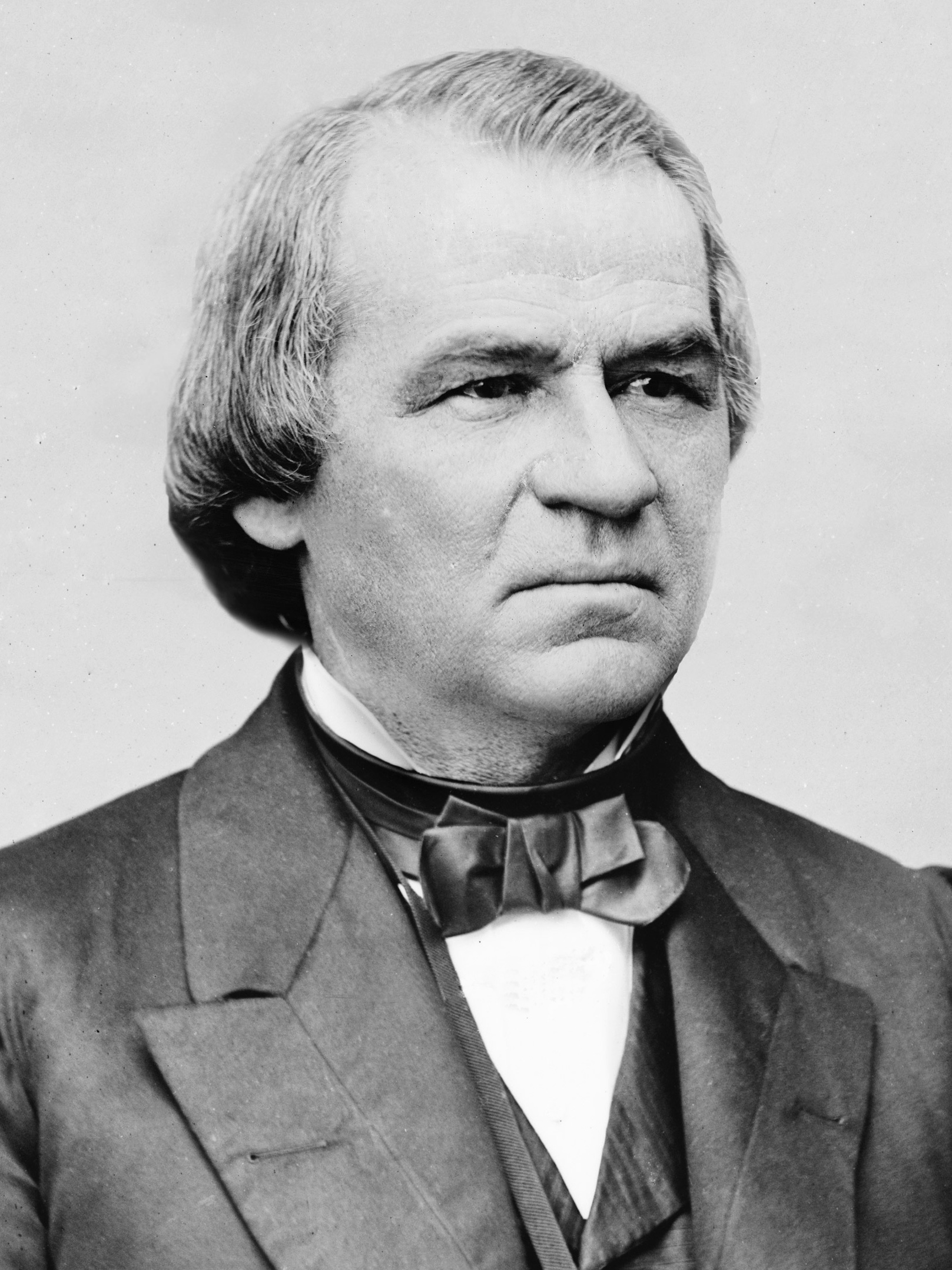Andrew Johnson citáty a výroky
Andrew Johnson: Citáty anglicky
Quote, First State of the Union Address (1865)
Kontext: Our Government springs from and was made for the people — not the people for the Government. To them it owes allegiance; from them it must derive its courage, strength, and wisdom. But while the Government is thus bound to defer to the people, from whom it derives its existence, it should, from the very consideration of its origin, be strong in its power of resistance to the establishment of inequalities. Monopolies, perpetuities, and class legislation are contrary to the genius of free government, and ought not to be allowed. Here there is no room for favored classes or monopolies; the principle of our Government is that of equal laws and freedom of industry. Wherever monopoly attains a foothold, it is sure to be a source of danger, discord, and trouble. We shall but fulfill our duties as legislators by according "equal and exact justice to all men," special privileges to none.
Statement (1853) as quoted in Andrew Johnson, Plebeian and Patriot (1928) by Robert Watson Winston.
Quote
Kontext: There are some who lack confidence in the integrity and capacity of the people to govern themselves. To all who entertain such fears I will most respectfully say that I entertain none... If a man is not capable, and is not to be trusted with the government of himself, is he to be trusted with the government of others... Who, then, will govern? The answer must be, Man — for we have no angels in the shape of men, as yet, who are willing to take charge of our political affairs.
As quoted in Presidential Government in the United States: The Unwritten Constitution (1947) by Caleb Perry Patterson. <!-- p. 122 -->
Quote
Kontext: Your President is now the Tribune of the people, and, thank God, I am, and intend to assert the power which the people have placed in me... Tyranny and despotism can be exercised by many, more rigorously, more vigorously, and more severely, than by one.
Quote, First State of the Union Address (1865)
Kontext: Certainly the Government of the United States is a limited government, and so is every State government a limited government. With us this idea of limitation spreads through every form of administration — general, State, and municipal — and rests on the great distinguishing principle of the recognition of the rights of man. The ancient republics absorbed the individual in the state — prescribed his religion and controlled his activity. The American system rests on the assertion of the equal right of every man to life, liberty, and the pursuit of happiness, to freedom of conscience, to the culture and exercise of all his faculties. As a consequence the State government is limited — as to the General Government in the interest of union, as to the individual citizen in the interest of freedom.
Quote, Fourth State of the Union Address (1868)
Quote, First State of the Union Address (1865)
Quote, First Presidential address (1865)
“Mr. Jefferson meant the white race.”
Regarding the statement in the Declaration of Independence that "all men are created equal."
"Speech on Harper's Ferry Incident", 12 December 1859; as printed in The papers of Andrew Johnson, Vol. 3: 1858-1860 (1972), ed. LeRoy P. Graf and Ralph W. Haskins, p. 320.
Quote
Speech in Indianapolis, Indiana (26 February 1863).
Quote
“The goal to strive for is a poor government but a rich people.”
As quoted in Andrew Johnson, Plebeian and Patriot (1928) by Robert Watson Winston
Quote
Speech in Cleveland, Ohio (3 September 1866).
Quote
First address as Vice-President, widely reported as having been delivered while he was inebriated. (5 March 1865).
Quote
“No, gentlemen, if I am to be shot at, I want no man to be in the way of the bullet.”
As military governor of Tennessee, asserting that he would walk alone, to friends who offered to escort him to the statehouse, after postings of a placard saying he should be "shot on sight." (c.1862); as quoted in Andrew Johnson, President of the United States: His Life and Speeches (1866) by Lillian Foster.
Quote
Letter to William L. Sharkey, governor of Mississippi (June 1865).
Quote
Quote, Fourth State of the Union Address (1868)
Letter to his friend Colonel William G. Moore, complaining of Congressional investigations.... (1 May 1867).
Quote
Quote, First State of the Union Address (1865)
To Union soldiers (1865), as quoted in Andrew Johnson: A Profile http://web.archive.org/web/20110316175449/http://home.nas.com/lopresti/ps17.htm (1969), "Johnson and the Negro", by Lawanda Cox and John H. Cox; edited by Eric L. McKitrick, Hill & Wang, New York pp. 141.
Quote
“There are no good laws but such as repeal other laws.”
Statement (1835), as quoted in Andrew Johnson, Plebeian and Patriot (1928) by Robert Watson Winston.
Quote
“Whenever you hear a man prating about the Constitution, spot him as a traitor.”
Remark made by Johnson as military Governor of Tennessee, as quoted in A Reveiw of the Political Conflict in America (1876) by Alexander Harris, A Review of the Political Conflict in America http://books.google.com/books?id=SSJCAAAAIAAJ&pg=RA3-PA430&lpg=RA3-PA430&dq=%22Whenever+you+hear+a+man+prating+about+the+constitution,+spot+him+as+a+traitor.%22&source=bl&ots=qaAT3IyIjL&sig=BUycxkmzVIjpEmfNI5s_FxcjlvE&hl=en&ei=S_evS5jJO8H-8Abe5KSABw&sa=X&oi=book_result&ct=result&resnum=5&ved=0CBMQ6AEwBA, p. 430.
Quote
Quote, First Presidential address (1865)
As quoted in "The Good Fight" https://archive.org/details/orationsandaddr03curtgoog (1865), by George William Curtis.
Quote
Quote, First State of the Union Address (1865)
Veto message to the House of Representatives (22 February 1869).
Quote
“It's a damn poor mind that can only think of one way to spell a word.”
More commonly misattributed to Andrew Jackson, the originator of this line is actually unknown.
Misattributed
